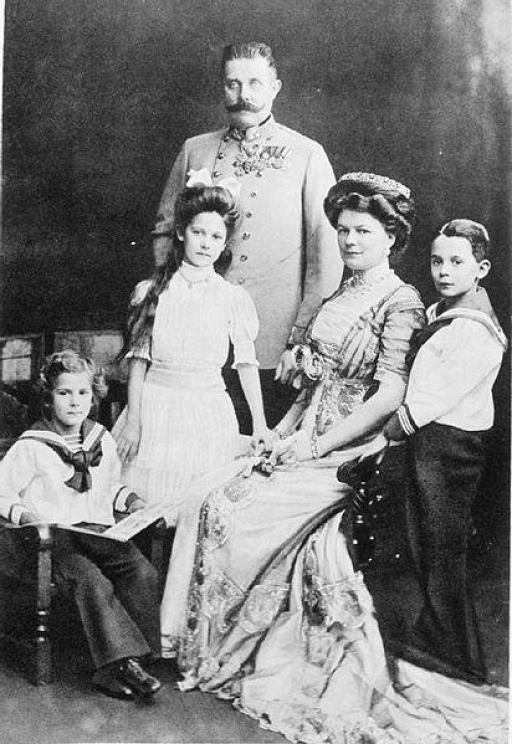Today marks five months until the Centenary of the assassination of the heir to the thone of Austria-Hungary, Archduke Franz Ferdinand, and six months until Centenary of the outbreak of the First World War.
The assassination in Sarajevo took place on the 28th June 1914.
Commemorations
On the 21st June 2014, the University of Sarajevo will host a major international conference entitled: ‘The Position of the First World War in the History of Europe‘.
Scholars from 26 European countries and the US and Canada have already confirmed their attendance to the conference, which will “discuss all aspects that led to the outbreak of World War I”.
The Vienna Philharmonic Orchestra has announced that it will perform at Sarajevo Vijecnica (city hall) on the 28th June 2014 to mark the Centenary of the assassination.
France and Germany also announced in April 2013 that they would provide funding to the City of Sarajevo to mark the outbreak of the conflict.
A programme of events in the city will include cultural events, commemorations, academic reflection upon the conflict, as well as athletic events for the month of June 2014.
A foundation – Sarajevo heart of Europe – was established by France and the city of Sarajevo. The foundation will also be involved in the commemorations.
Blame
In mainstream histories of the origins of the First World War, Ferdinand’s assassination by Bosnian-Serb nationalist Gavrilo Princip has been considered an important cause in the outbreak of the conflict.
However, this idea has been challenged, and is increasingly being done so in light of the Centenary.
Since the start of 2014, there have been several political arguments about left vs. right readings of the conflict and who is to “blame” for its outbreak.
Serbia
At the beginning of 2014, the National Archive of Serbia presented a copy of a letter from 1913, which the Director of the National Archive, Dr. Miroslav Perisic, claimed absolved his country from any blame for causing the First World War.
The letter was written by the Austrian Governor of Bosnia and Herzegovina, Oskar Potiorek, to the Austro-Hungarian Minister of Finance and is dated the 28th May 1913.
The document is a 1930 typewriter copy of the handwritten letter.
Governor Potiorek highlights the importance of preventing a “union of all Southern Slavs” in the letter and that the Austro-Hungarian Empire should prepare for “an inevitable large-scale war in a few years”.
He also warns that “one can never make Serbia a trusted friend”, as it “will fight in any future war openly and bitterly on the side of our enemies”.
Dr. Perisic stated that the letter – of which the original cannot be located – is “a primary source and one of the most important historical sources for the study of questions of guilt and responsibility for the First World War”.
The announcement was welcomed in the Serbian press.
On the 5th January 2014, Blic ran the headline ‘Vienna panned war in 1913’; Novosti went with the headline that Austria had ‘planned war a year before the murder of Ferdinand’; whilst an online article on the Kurir website stated that ‘Austria-Hungary was preparing for war 13 months before murder of Ferdinand!’.
Austria
The presentation of the letter from 1913 was criticsed in Austria.
The newspaper Neue Zürcher Zeitung published an article on its website on the 7th January 2014 about the letter, in which it stated that Serbia refused to accept that Gavrilo Princip would be remembered as an “Al-Qaeda like terrorist”.
It also claimed that Belgrade refused to accept that Serbia was “complicit in the catastrophe of the First World War”.
The article also states that a huge “propagandistic effort” had been put in to the presentation of the letter by the Serbian authorities, with the intention of trying to “whitewash Serbia of all charges [of its role in the outbreak of the First World War]”.
Posted by: Daniel Barry, Centenary News
